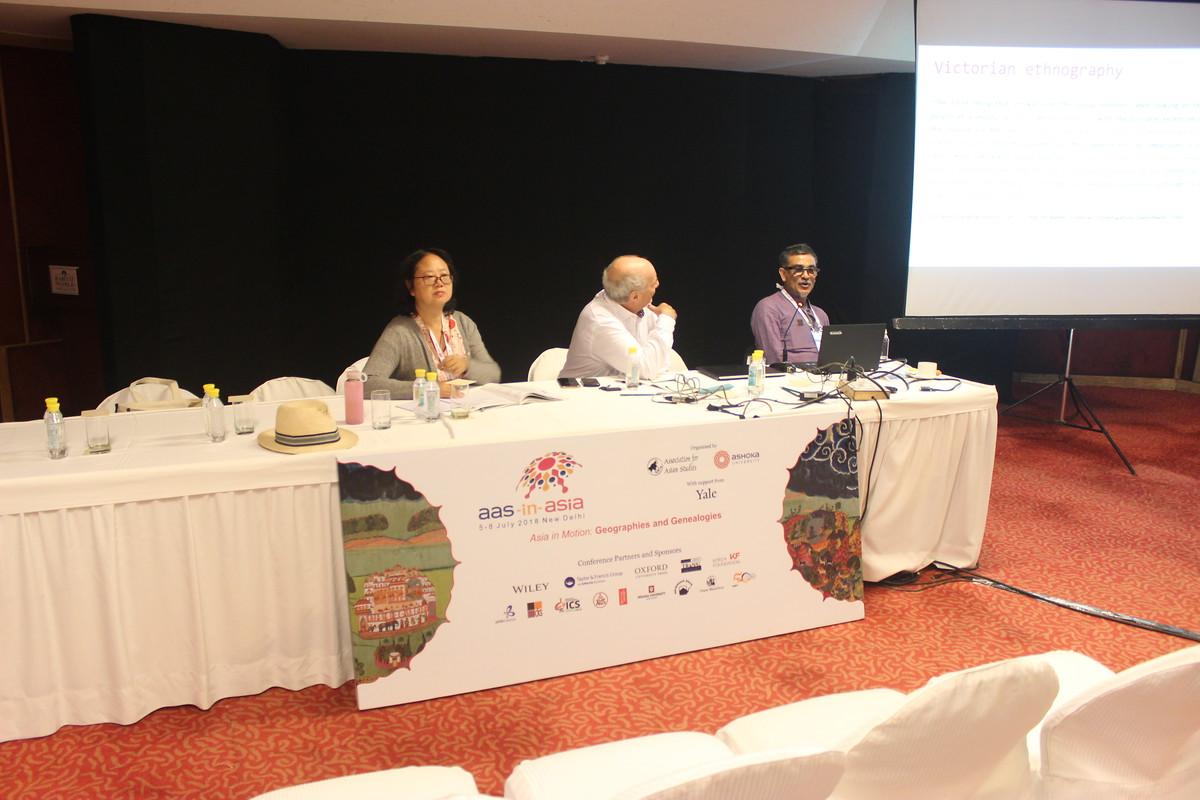Event reports
During the opening ceremony, Prof. Rudrangshu Mukherjee, Chancellor of Ashoka University, set the tone of the conference with the statement "Let scholarship and ideas thrive and be in motion, perhaps even in conflict". After the introductory speeches, the keynote address was delivered by Professor James Scott from Yale University followed by an intense discussion between him and Professor Pratap Bhanu Mehta from Ashoka University. In their discussion they shed light on the nature of the modern state, methodological challenges of studying society and the philosophical attractions of anarchism. Professor Scott explained that his lifelong engagements with field studies in South and South-East Asia were key experiences for him and contributed to the success of his works. Both professors made clear that due to the current global uncertainty, scholars’ voices were needed more than ever before.
Konrad-Adenauer-Stiftung partnered the conference for the Panel on “Interactions Between India and China” on 6th July, 2018. The Panel was chaired by Prem Poddar, Roskilde University, along with the other prominent speakers Chris Sinha, Hunan University, and Shen Haimei, Yunnan Minzu University.
The panel was not confined to one discipline but visits approaches and materials from history, politics, philosophy and cognitive science. While the history of interactions between China and India is a long one going back at least to the arrival of Buddhism in China, there existed a lacuna in accounts of twentieth and twenty-first-century perceptions of each other, philosophical as well as cultural commonalities. This panel had put together three papers that considered the histories, possibilities, and nature of interactions both between and beyond these two entities.
Prem Poddar began his presentation from the time of the British-Indian government when Indian authorities introduced mandatory registration for all Chinese residents on arriving in India. He emphasized on Kalimpong, the Himalayan border town, which was harboring a sizeable Chinese migrant community as well as being strategically situated on the Ancient Tea Horse Road connecting China to India, lent itself to Alien Acts that were promulgated in differing forms all over the British Empire. He also further spoke about how the town’s favorable trade and geopolitical location and its attraction for adventurers from all over the world also encouraged the state to set up a surreptitious rule of colonial difference.
Chris Sinha in his presentation discussed about the resemblances of India and China pointing out that they are both territorially large, hugely populous, multi-ethnic, multi-cultural, multi-linguistic and multi-faith polities, each struggling repeatedly with its own fissional and centripetal forces, especially at the geographical periphery. He further also spoke about their historical relations, which have been problematic. Memories of the 1962 war have been unearthed by recent border conflicts, in which both sides have seemed eager to demonstrate intransigence. To all this he cited a pilot study, which focused on the question as to how do Chinese and Indian People view each other. The participants in the study were educated young Chinese and Indians. The methodology employed questionnaires and focus groups, with the aim of establishing what the youth of each of these countries actually know about each other’s countries, and how they symmetrically or asymmetrically conceptualized them. The study also triangulated the China-India relationship.
Shen Haimei analyzed the regional history of the Erhai region of Western Yunnan, the meeting ground of China, India, Tibet, Burma and other cultures in Southeast Asia. He compared three historical texts of various origins, dedicated to the region, in order to gain an understanding of the history of the region. It became clear that these texts deal very differently with certain events or personalities such as Ashoka, the greatest Indian king. He concluded that the different historical narratives corresponded to the different demands on the "past" of the different peoples.




